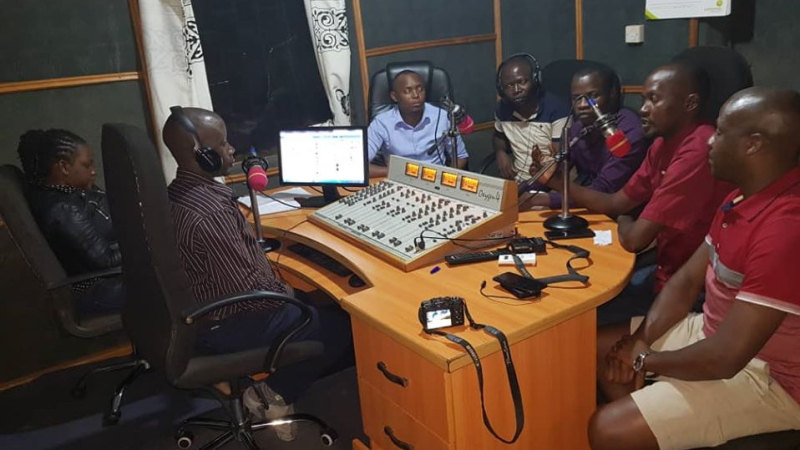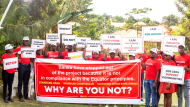Uganda and DRC CSOs communique on failures in EACOP ESIA public hearings

This week, the Petroleum Authority of Uganda (PAU) in consultation with the National Environment Management Authority (NEMA) organised three public hearings on the Environmental and Social Impact Assessment (ESIA) report for the East African Crude Oil Pipeline (EACOP) project.
The public hearings were organised in the districts of Kakumiro, Mubende and Rakai. The Africa Institute for Energy Governance (AFIEGO) and 15 CSO partners from Uganda and the DRC participated in the public hearings.
Following their participation, the CSOs issued a communique through which they show that PAU violated national environmental laws and failed to respect regional accords aimed at ensuring the harmonious exploitation of resources in the Great Lakes region.
They also show that communities had to cover long distances and incur high costs to participate in the public hearings as only three hearings were organised. This is despite the fact the EACOP will affect ten districts in Uganda.
Failure to organise public hearings in all the ten affected districts undermined effective public participation in the public hearings. This could have far-reaching implications.
In addition, the presiding officer gave communities, some of whom had moved long distances to participate in the public hearings, only one minute to comment on the big EACOP ESIA report. This was especially seen in Kakumiro and it was unfair. It also went against the rules of natural justice.
Through the communique, the CSOs are calling on NEMA to direct PAU to organise public hearings in all the ten EACOP affected districts.
They also make other recommendations to enable effective public participation in the public hearings. This will make NEMA take the right decision on the EACOP project to promote environmental conservation and community livelihoods.

